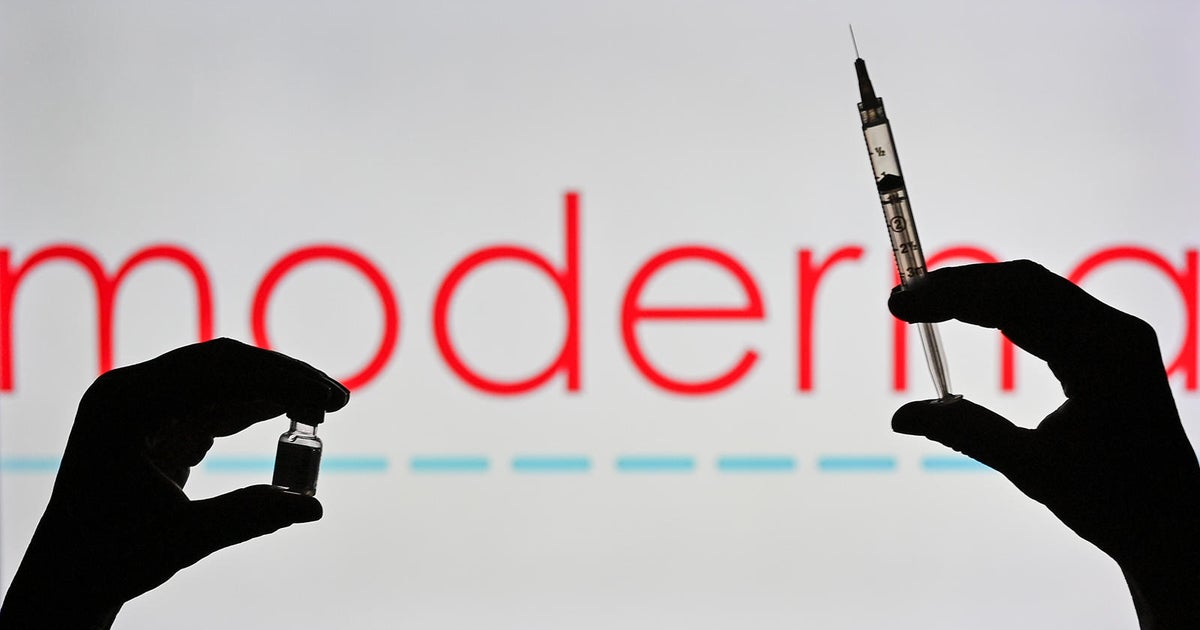What Big Tech can expect from the next administration
Technology companies are facing their harshest attacks in Washington in at least two decades, back when Microsoft and its Windows software monopoly was the government's top antitrust target.
Two days after the Trump administration filed an antitrust lawsuit against Google this week, the Senate Judiciary Committee voted to haul in Twitter and Facebook for questioning. A lawsuit against Facebook could reportedly drop as soon as this month, according to the New York Times. And weeks ago, the House antitrust subcommittee issued a sweeping call to restructure the largest tech companies and modernize U.S. antitrust law that stretches back to the Sherman Act of 1890, the year before Thomas Edison invented the incandescent light.
Tech companies today increasingly fear that a "blue wave" in which Democrats win control of the Senate and the White House would usher in an era of stricter oversight. But no matter which party controls Washington, big tech faces a more heavily scrutinized future.
"We're coming off of 20 years of a bipartisan consensus that the internet works best when the lawmakers stay out of the way," Bloomberg Intelligence analyst Matthew Schettenhelm said on a conference call this week about tech and politics. "It's changed fast and it's changed on a bipartisan basis."
Politicians are eyeing legislation to rein in tech companies' actions. Representative David Cicilline, the Rhode Island Democrat who chairs the House antitrust subcommittee, said this week he expects to start work immediately on new laws, and to "work through the lame duck [session] and into the next Congress." Representative Pramila Jayapal, another committee member, told CNBC she expects "significant legislation" in the first three to six months of next year.
Here are the changes that could be in store for tech's "Big Four" — Amazon, Apple, Facebook and Google — and everyone who uses their products.
A new federal privacy agency
Some Democrats say the tech giants are a large enough problem to deserve their own policeman. The federal government is currently outgunned, the antitrust committee found this month. It noted that the government devotes about $500 million a year to antitrust efforts, while Alphabet, Amazon, Apple and Facebook together are worth $2 trillion, or one-tenth of the nation's GDP.
Proposed laws such as the Data Privacy Act, sponsored by Representatives Zoe Lofgren and Anna Eshoo, would establish a federal privacy agency with the ability to oversee technology companies.
An aggressive federal agency would be a worst-case scenario for technology companies. Such an agency would have the resources and the mandate to focus on one industry, acting like the Consumer Financial Protection Bureau under President Obama, or the Federal Communications Commission.
A dedicated agency like the FCC "can really get into the weeds of how these companies run their business, and they can look at whether they're acting in public interest or not. That's the kind of thing the internet companies would really want to avoid," Schettenhelm said.
Still, this is unlikely without Democrats winning a large Senate majority, since Republicans have strongly opposed the idea. An industry-specific agency also risks getting too cozy with the industry it regulates, said Rebecca Haw Allensworth, a professor at Vanderbilt Law School specializing in antitrust and public policy.
"If you create a different agency for different sectors of the economy, they are especially at risk of capture," said Allensworth. "This is a big problem with the Securities and Exchange Commission — the financial institutions and the SEC are particularly cozy, because they are so specialized."
More lawsuits from the government
Even without a new agency, the government can be more aggressive in its scrutiny of tech companies, as the Justice Department's lawsuit against Google shows. A Democratic administration would likely be more assertive, antitrust experts say. Rohit Chopra, a Democratic member of the Federal Trade Commission, laid out a blueprint for a new administration in a press conference this week, in which he called for an end to "the era of weak enforcement."
"We can do things now, under our own mandate under existing law, and we should. We want Congress to update [antitrust] laws but we don't have to wait for them," Chopra said.
Chopra suggested the government could levy much harsher penalties than its settlement last year with Facebook or an earlier settlement with YouTube indicated, including charging companies criminally. He also noted the FTC can investigate all kinds of wrongdoing, not just allegations of monopolistic behavior. Laws on the books prohibit "deceptive behavior," something plenty of tech companies have been accused of doing, particularly when it comes to using customers' data.
Bringing just a few lawsuits against major players could have an effect on an entire industry, said antitrust lawyer Jonathan Kanter.
"Enforcement breeds change," said Kanter, who started his career at the heyday of the government's case against Microsoft in the 1990s. "Most assignments I got as a young lawyer were from companies wanting to make sure they would not run into the same battle Microsoft did," he recalled on a recent webinar. "Fast forward 10 to 15 years, nobody was calling with those questions because...nobody was concerned there would be enforcement."
Tech companies have become adept at responding to government scrutiny in ways that don't change their underlying business, said attorney Joel Mitnick, a partner in the antitrust practice at law firm Cadwalader who has represented businesses in cases against tech giants, including Apple.
"They are just playing whack-a-mole with the big tech companies," Mitnick said of his clients. The tech giants will "change their policies from something that's being investigated to something that's different, but has the same effect."
Changing court precedents
Still, winning a lawsuit is harder than filing one. The government faces an uphill battle in its case against Google, analysts say, because the courts have created a high bar to win these cases, which can take a decade or longer to play out.
"In court today, without a change in the laws, precedent makes it very difficult to win these kinds of cases that have now been brought against Google" and may be brought against Facebook, said Bloomberg Intelligence analyst Jennifer Rie during this week's conference call on tech and politics.
Legal precedents that Democrats want overturned include Ohio v. American Express, which found that firms running "platforms" that serve two types of customers must harm both to be considered monopolies. Like American Express, which serves both merchants and shoppers, most of today's biggest tech companies operate as platforms. Uber and Lyft connect drivers with passengers; Amazon connects shoppers with retailers; and Google and Apple run app stores that connect smartphone users with app developers.
Another trend Democrats want to reverse is the courts' narrow interpretation of antitrust law to focus on whether or not consumers are paying higher prices than they would under robust competition. The problem: People who post photos on Instagram or search on Google don't pay cash for the product and would have a hard time arguing they were harmed by these companies under this standard. Many activists and some scholars argue that people who use technology pay for it in other ways, including giving away their private information.
"Privacy is one of the costs that these companies incur on us. It's one of the prices that we pay for their products," Allensworth said.
Data limits
The new laws are likely to target data collection, an area that both parties say needs reform. Democrats want to limit what kind of information companies can collect and how companies can use it. Politicians of both parties have expressed support for making data portable, which would make it easier for users of one platform to move their data to another platform.
"Theoretically the effect would be greater competition from other platform that can now use that data to compete with big tech companies," said attorney Mitnick of Cadwalader.
Limits on data collection and use, even if they were modest, could have a significant effect on tech companies' bottom line. A law that requires companies to get users' permission before collecting data could potentially "turn off the spigot" of customer information, which would strike at the core of big tech's business models, said Schettenhelm of Bloomberg Intelligence.
"Google and Facebook have thrived in the ad data business. They have collected troves of data, and the reason is you're sharing your data by default, unless you figure out a way to go into their system and turn it off," he said. "The default program matters."
Indeed, Facebook recently complained that an Apple software update, which would require apps to ask permission to collect user data, could "severely impact" publishers' ability to make money from Facebook ads. (Apple has since delayed that update.)
A law could also limit how much data could be shared among different products owned by the same company. For instance, Facebook, by virtue of the data it's collected on its users, has "a huge head start" when it launches new products, Schettenhelm said. The company's current expansion to becoming a shopping platform gets a lot of help from its troves of data on users' demographics and retail preferences. Limiting Facebook's use of that data would give smaller competitors a leg up.
Lawsuits from users
Many tech companies today include "terms of service" for their platform that take away users' rights to sue, instead requiring them to solve disputes in private arbitration. Arbitration cases are typically decided by a single person instead of a jury, and, unlike court cases, they are not public and don't give the loser the right to appeal. Amazon, Etsy, Lyft, Medium, Microsoft, PayPal and Uber are among the companies that require arbitration.
The Supreme Court has recently upheld companies' ability to use these clauses in everything from credit card agreements to employment contracts, but polls show about two-thirds of Americans oppose them. The House antitrust report singled out arbitration as a way for companies to "avoid legal accountability for their actions...and hide behind a one-sided process that is tilted in their favor."
Getting rid of mandatory arbitration "would be tremendously important everywhere," said Mark Patterson, a professor of antitrust law at Fordham University. "The confidentiality with which arbitration and mediation are conducted prevents us from knowing about what's going on in many markets. In these [technology] markets, where the use of information is so opaque, it's especially important."



